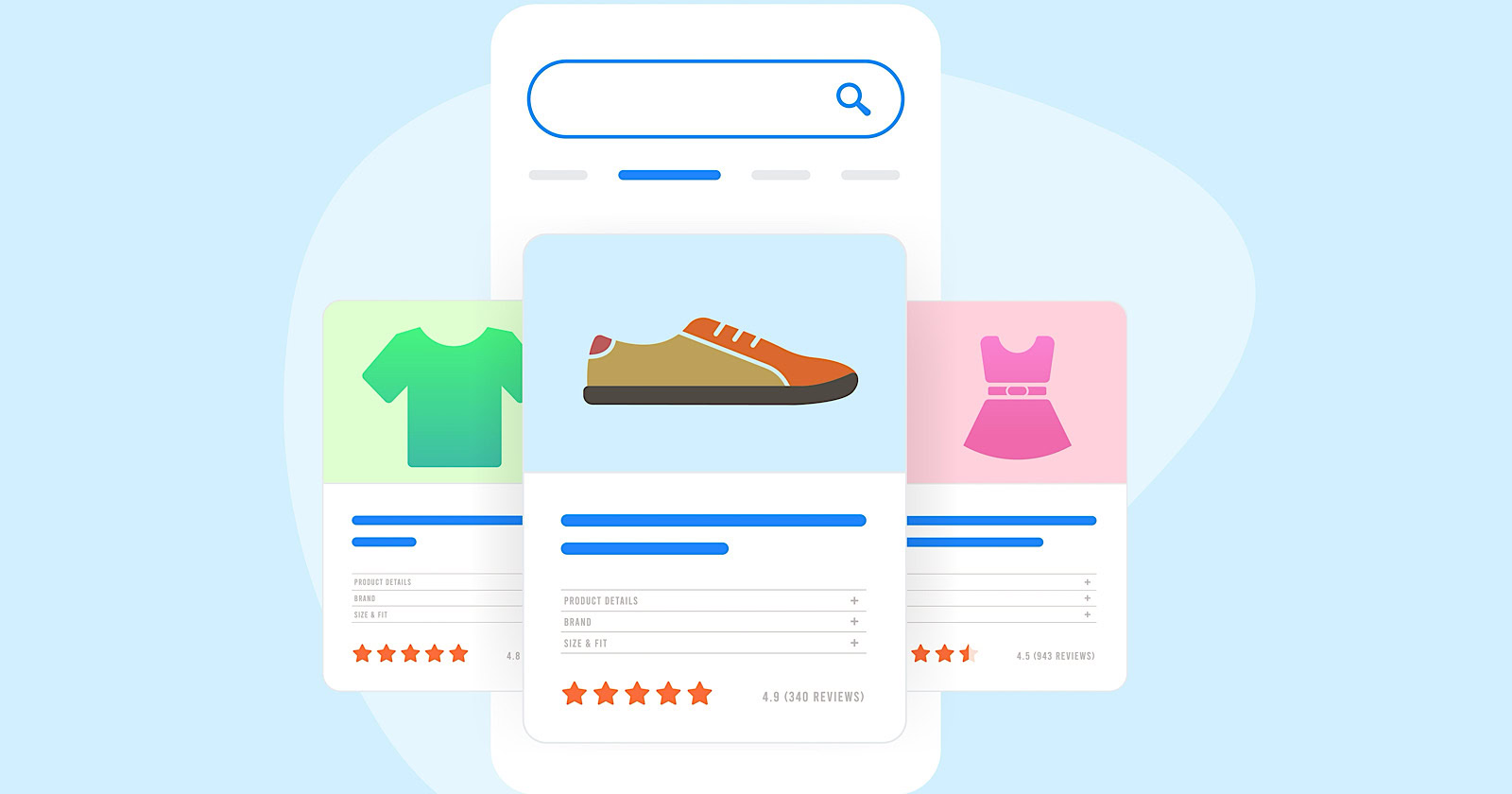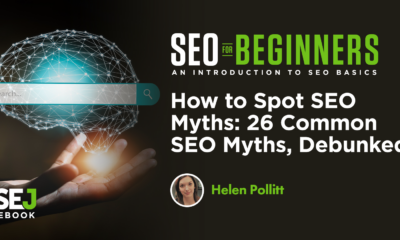SEO
SEO Salary Survey 2023 [Industry Research]
![SEO Salary Survey 2023 [Industry Research] SEO Salary Survey 2023 [Industry Research]](https://articles.entireweb.com/wp-content/uploads/2023/11/SEO-Salary-Survey-2023-Industry-Research.jpg)
Editor’s note
Here are the top takeaways:
- The median annual salary for SEOs we polled was $49,211
- The highest annual salary we polled was $229,652
- To earn the higher salaries in SEO you need be a technical SEO expert—Heads of SEO, SEO Directors and SEO Leads all said that their main specialization was technical SEO
- Only 5.4% of respondents learned SEO through a course—most learned on the job (52.3%) or by themselves (42.3%)
- 36.9% described themselves as content specialists, 30.6% described themselves as technical specialists, 6.3% described themselves as specializing in link-building
- 49.5% of respondents worked in SEO agencies, 42.3% in-house and 8.2% were self-employed
- Most respondents (28.8%) worked in companies that had 11-50 people
- The average SEO experience of our respondents was 6.9 years
- Self-employed SEOs earned the most on average ($60,232k)—the median annual salary for in-house roles was slightly lower at $56,789, and agency SEOs had the lowest median annual salary at $44,169
There were also a few surprises:
- Few SEOs in our survey said that they specialized in link building compared to technical and content. This is despite the fact that links are still one of the most important Google ranking factors.
- The average level of experience between SEO Directors and Head of SEO is not that different—10.4 years for a SEO Director and 10.6 years for a Head of SEO—but the salary difference between the roles was ~$11,552—quite substantial.
Overview
| Role | Median annual salary ($USD) | Average experience (years) | Main specialization | Main work location |
|---|---|---|---|---|
| Head of SEO | $92,988 | 10.6 | Technical SEO | Agency and in-house |
| SEO Director | $81,436 | 10.4 | Technical SEO | Agency and in-house |
| SEO Lead | $38,289 | 7.4 | Technical SEO | Agency |
| SEO Specialist | $49,229 | 5.8 | Content | In-house |
| SEO Account Manager | $43,850 | 4.2 | Content | Agency |
| SEO Consultant | $49,240 | 6 | All-rounder | Agency |
| SEO Executive | $31,956 | 3 | All-rounder | Agency |
| SEO Analyst | $56,393 | 5 | All-rounder | In-house |
Here’s how annual salaries broke down across our respondents:
According to the SEOs we polled, most of them learned SEO on the job or were self-taught.
![SEO Salary Survey 2023 [Industry Research] Chart displaying how individuals learned SEO.](https://articles.entireweb.com/wp-content/uploads/2023/11/1701228375_87_SEO-Salary-Survey-2023-Industry-Research.png)
![SEO Salary Survey 2023 [Industry Research] Chart displaying how individuals learned SEO.](https://articles.entireweb.com/wp-content/uploads/2023/11/1701228375_87_SEO-Salary-Survey-2023-Industry-Research.png)
Most of our respondents had a couple of years of experience under their belts. The amount of experience Head of SEOs had versus SEO Directors was not that different, at around 10 years.
![SEO Salary Survey 2023 [Industry Research] Average level of experience by role](https://articles.entireweb.com/wp-content/uploads/2023/11/1701228375_647_SEO-Salary-Survey-2023-Industry-Research.png)
![SEO Salary Survey 2023 [Industry Research] Average level of experience by role](https://articles.entireweb.com/wp-content/uploads/2023/11/1701228375_647_SEO-Salary-Survey-2023-Industry-Research.png)
- Across all respondents, the average experience was 6.9 years
- For Head of SEO, the average experience was 10.6 years
- For SEO Director, the average experience was 10.4 years
- For SEO Lead, the average experience was 7.4 years
- For SEO Account Manager, the average experience was 4.2 years
- For SEO Consultant, the average experience was 6 years
- For SEO Executive, the average experience was 3 years
- For SEO Analyst, the average experience was 5 years
Technical and Content were the two top skills that SEOs we surveyed specialized in.
![SEO Salary Survey 2023 [Industry Research] Areas of SEO specialization](https://articles.entireweb.com/wp-content/uploads/2023/11/1701228375_745_SEO-Salary-Survey-2023-Industry-Research.png)
![SEO Salary Survey 2023 [Industry Research] Areas of SEO specialization](https://articles.entireweb.com/wp-content/uploads/2023/11/1701228375_745_SEO-Salary-Survey-2023-Industry-Research.png)
The proportion of SEOs that said they specialized in links was much lower despite links being a major ranking factor.
Our survey showed an almost 50/50 split between the UK and Europe. 48.6% of respondents were from the UK—perhaps not surprising given that BrightonSEO is based in the UK.
![SEO Salary Survey 2023 [Industry Research] Chart of countries SEOs are from](https://articles.entireweb.com/wp-content/uploads/2023/11/1701228375_949_SEO-Salary-Survey-2023-Industry-Research.png)
![SEO Salary Survey 2023 [Industry Research] Chart of countries SEOs are from](https://articles.entireweb.com/wp-content/uploads/2023/11/1701228375_949_SEO-Salary-Survey-2023-Industry-Research.png)
Most of the respondents we spoke to worked in agencies or in-house. It does mean, however, that our salary data was mainly focused on these two employment types.
![SEO Salary Survey 2023 [Industry Research] Chart listing where SEOs work](https://articles.entireweb.com/wp-content/uploads/2023/11/1701228375_779_SEO-Salary-Survey-2023-Industry-Research.png)
![SEO Salary Survey 2023 [Industry Research] Chart listing where SEOs work](https://articles.entireweb.com/wp-content/uploads/2023/11/1701228375_779_SEO-Salary-Survey-2023-Industry-Research.png)
Across all respondents, the most common company size was 11-50. A large proportion of SEOs also worked for substantially larger companies that had over 1000 employees.
![SEO Salary Survey 2023 [Industry Research] Number of people in the company](https://articles.entireweb.com/wp-content/uploads/2023/11/1701228375_772_SEO-Salary-Survey-2023-Industry-Research.png)
![SEO Salary Survey 2023 [Industry Research] Number of people in the company](https://articles.entireweb.com/wp-content/uploads/2023/11/1701228375_772_SEO-Salary-Survey-2023-Industry-Research.png)
Here’s the full breakdown of each role.
Head of SEO salary
It’s probably not too much of a surprise that the Head of SEO role was our highest-paying SEO role surveyed. What’s more of a surprise was the variation in salary—our survey showed that a Head of SEO can earn anything from ~$25k to ~$229k.
![SEO Salary Survey 2023 [Industry Research] head-of-seo-salary](https://articles.entireweb.com/wp-content/uploads/2023/11/1701228375_130_SEO-Salary-Survey-2023-Industry-Research.png)
![SEO Salary Survey 2023 [Industry Research] head-of-seo-salary](https://articles.entireweb.com/wp-content/uploads/2023/11/1701228375_130_SEO-Salary-Survey-2023-Industry-Research.png)
Average experience
According to our survey, a Head of SEO has ~10.6 years of experience.
Type of company
46.7% of respondents worked for an agency, and 46.7% worked in-house. 6.7% were self-employed.
Education
66.7% of respondents said they were self-taught, 26.7% said they’d learned on the job, and 6.7% said that they had learned SEO from a course.
Specialization
40% said that they specialized in technical SEO, 33.3% in Content, and 13.3% said they were a generalist. The remaining 13.4% said they focused on people management.
This is surprising, as it implies that 73.3% of people in Head of SEO roles are actively providing SEO services for their clients rather than focusing on managing a team.
Company size
There were two company sizes that were most popular for Head of SEOs to work in. 40% of respondents said they worked in companies with 11-50 people, and 20% said they worked in companies with over 1001 people.
Location
40% of respondents were from the UK, 13.3% were from the Netherlands, and the remainder were from mainland Europe.
SEO Director salary
The salary variation wasn’t quite as extreme for SEO Directors, but salaries ranged from ~$42k to ~$121k—still quite a difference.
![SEO Salary Survey 2023 [Industry Research] SEO Director salary](https://articles.entireweb.com/wp-content/uploads/2023/11/1701228375_970_SEO-Salary-Survey-2023-Industry-Research.png)
![SEO Salary Survey 2023 [Industry Research] SEO Director salary](https://articles.entireweb.com/wp-content/uploads/2023/11/1701228375_970_SEO-Salary-Survey-2023-Industry-Research.png)
Average experience
SEO Directors in our survey had 10.4 years of experience on average.
Type of company
There was a 50/50 split between SEO Directors’ backgrounds, with 50% from agency and 50% from in-house
Education
62.5% of SEO Directors described themselves as self-taught, and 37.5% said that they learned SEO on the job.
Specialization
75% of them specialized in technical SEO, whilst 25% described themselves as generalists or Other.
Company size
According to our survey, SEO Directors typically work in medium to large companies. 25% said that they worked in companies that had over 1000 people, and 25% said they worked in companies that had 51-100 employees.
Location
Most SEO Directors we surveyed were from the UK (62.5%). The rest were equal splits between India, the U.S., and Germany (12.5%).
SEO Lead salary
SEO Leads typically have a lot of experience, but our survey shows that they only earn slightly more on average than SEO Specialists.
![SEO Salary Survey 2023 [Industry Research] SEO Lead salary](https://articles.entireweb.com/wp-content/uploads/2023/11/1701228376_68_SEO-Salary-Survey-2023-Industry-Research.png)
![SEO Salary Survey 2023 [Industry Research] SEO Lead salary](https://articles.entireweb.com/wp-content/uploads/2023/11/1701228376_68_SEO-Salary-Survey-2023-Industry-Research.png)
Average experience
SEO Leads in our survey had 7.4 years of experience on average.
Type of company
50% of SEO Leads came from an agency background, 41.7% came from in-house, and 8.3% were self-employed.
Education
69.2% learned on the job, 23.1% were self-taught, and 7.7% learned SEO through a course.
Specialization
30.8% of SEO Leads specialized in technical SEO, 23% specialized in content, and 23.1% specialized in links. 15.4% described themselves as generalists. The remaining 7.7% described themselves as specializing in SEO strategy.
Company size
46.2% worked in companies that had 1001+ people, and the remaining 53.8% worked in smaller companies.
Location
23.1% of SEO Leads came from the UK, with the remainder coming from the Netherlands, Italy, and Sweden (15.4% each) and 30.7% from other European countries.
SEO Specialist salary
SEO Specialists we surveyed had around 5-6 years of experience, but they typically got paid better than SEO Leads. Based on my experience, this may be due to in-house roles paying better than agency roles in the UK.
![SEO Salary Survey 2023 [Industry Research] SEO Specialist salary](https://articles.entireweb.com/wp-content/uploads/2023/11/1701228376_734_SEO-Salary-Survey-2023-Industry-Research.png)
![SEO Salary Survey 2023 [Industry Research] SEO Specialist salary](https://articles.entireweb.com/wp-content/uploads/2023/11/1701228376_734_SEO-Salary-Survey-2023-Industry-Research.png)
Average experience
SEO Specialists in our survey had an average of 5.8 years of experience.
Type of company
41.2% of SEO Specialists came from an agency background, while 58.8% said that they were from an in-house background.
Education
58.8% of SEO Specialists said that they had learned SEO on the job, 35.3% said that they were self-taught, and 5.9% said that they had learned SEO through a course.
Specialization
52.9% of SEO Specialists specialized in content, 29.4% focused on technical, 11.8% described themselves as all-rounders, and 5.9% described specialized in links.
Company size
41.2% of SEO Specialists said that they worked in companies that had 11-50 people. Only 17.6% of respondents said that they worked in companies that had 1001+ people. 23.6% said they worked in companies between 51-500 people. The remaining 17.6% worked in smaller companies with less than 10 people.
Location
23.5% of SEO Specialists said that they were from the UK, with the remainder from Europe.
SEO Account Manager salary
SEO Account Managers in our survey were one of the most consistent salary bands earning between ~$40k and ~$55k.
![SEO Salary Survey 2023 [Industry Research] SEO Account Manager salary](https://articles.entireweb.com/wp-content/uploads/2023/11/1701228376_314_SEO-Salary-Survey-2023-Industry-Research.png)
![SEO Salary Survey 2023 [Industry Research] SEO Account Manager salary](https://articles.entireweb.com/wp-content/uploads/2023/11/1701228376_314_SEO-Salary-Survey-2023-Industry-Research.png)
Average experience
SEO Account managers in our survey had 4.2 years of experience on average.
Type of company
85.7% of respondents worked for an agency, and 14.3% worked in-house.
Education
71.4% of respondents said they learned SEO on the job, and 28.6% said they were self-taught.
Specialization
42.9% said that they specialized in content, 28.6% described themselves as an all-rounder, 14.3% said they were technical SEO, and the remaining 14.2% said they specialized in links.
Company size
42.9% of respondents said they worked in companies with 11-50 people, and 28.6% said they worked in companies with over 1001 people. The remaining 28.6% was split equally between people who worked in companies with between 2-11 people or 51-100 people.
Location
85.7% of respondents were from the UK, and 14.3% of the remainder were from Europe.
SEO Consultant salary
SEO Consultants we surveyed earned up to ~$87k, which was lower than I was expecting—because our SEO pricing post suggested that SEO consultants charge between $100-150 per hour.
But as the data is UK-focused, the likely reason for this is the £85k VAT tax threshold.
![SEO Salary Survey 2023 [Industry Research] SEO Consultant salary](https://articles.entireweb.com/wp-content/uploads/2023/11/1701228376_411_SEO-Salary-Survey-2023-Industry-Research.png)
![SEO Salary Survey 2023 [Industry Research] SEO Consultant salary](https://articles.entireweb.com/wp-content/uploads/2023/11/1701228376_411_SEO-Salary-Survey-2023-Industry-Research.png)
Average experience
SEO Consultants in our survey had 6 years of experience on average.
Type of company
63.3% of respondents worked for an agency, and 36.7% worked in-house.
Education
45.5% of respondents said they were self-taught, 36.4% said they’d learned on the job, and 9.1% said that they had learned SEO from a course. The remaining 9% said they’d learned from other ways.
Specialization
27.3% said that they specialized in technical SEO, 27.3% in content, and 27.3% said they were a generalist. The remaining 18.1% said they focused on management and strategy.
Company size
SEO Consultants typically worked on their own or in smaller agencies according to our survey — 36.4% of respondents said they worked on their own, and 27.3% said they worked in companies with 51-100 people. The remaining 36.3% said they worked in companies with between 2-50 people.
Location
36.4% of respondents were from the UK, 27.3% were from the Netherlands, and the remaining 36.3% were from Europe.
SEO Executive salary
![SEO Salary Survey 2023 [Industry Research] SEO Executive salary](https://articles.entireweb.com/wp-content/uploads/2023/11/1701228376_756_SEO-Salary-Survey-2023-Industry-Research.png)
![SEO Salary Survey 2023 [Industry Research] SEO Executive salary](https://articles.entireweb.com/wp-content/uploads/2023/11/1701228376_756_SEO-Salary-Survey-2023-Industry-Research.png)
Average experience
SEO Executives in our survey had 3 years of experience on average.
Type of company
80% of respondents worked for an agency, and 20% worked in-house.
Education
80% of respondents said they were self-taught, and 20% said they’d learned SEO from a course.
Specialization
40% said that they specialized in technical SEO, 20% in Content, and 40% said they were a generalist.
Company size
80% of respondents said they worked in companies with 11-50 people, and 20% said they worked in companies with 1001 or more people.
Location
80% of respondents were from the UK, and 20% were from Belgium.
SEO Analyst salary
SEO Analysts typically had a few more years of experience than SEO Executives, but it looks like they earned roughly the same as them.
![SEO Salary Survey 2023 [Industry Research] SEO Analyst salary](https://articles.entireweb.com/wp-content/uploads/2023/11/1701228376_108_SEO-Salary-Survey-2023-Industry-Research.png)
![SEO Salary Survey 2023 [Industry Research] SEO Analyst salary](https://articles.entireweb.com/wp-content/uploads/2023/11/1701228376_108_SEO-Salary-Survey-2023-Industry-Research.png)
Average experience
SEO Analysts in our survey had 5 years of experience on average.
Type of company
33.3% of respondents worked for an agency, and 66.7% worked In-house.
Education
33.3% of respondents said they were self-taught, and 66.7% said they’d learned on the job.
Specialization
33.3% said that they specialized in technical SEO, 33.3% in Content, and 33.3% said they specialized in News SEO.
Company size
33.3% of respondents said they worked in companies with 101-200 people, and 66.7% said they worked in companies with over 201 people.
Location
SEO Analysts came from a range of locations 33% of respondents were from Portugal, 33.3% were from Brazil, and the remainder were from Serbia.
Sidenote.
We didn’t get many respondents for the SEO Analyst role—so take these results with a pinch of salt.
Final thoughts
SEO salaries aren’t often discussed in detail within the industry, so getting a snapshot of their current state from one of the biggest SEO conferences in the UK was insightful.
For our next salary survey, we’ll be opening it up to all SEOs. If you’d like to take part—you can enter here.
Got questions? Ping me on X (formerly known as Twitter)
SEO
Google Cautions On Blocking GoogleOther Bot

Google’s Gary Illyes answered a question about the non-search features that the GoogleOther crawler supports, then added a caution about the consequences of blocking GoogleOther.
What Is GoogleOther?
GoogleOther is a generic crawler created by Google for the various purposes that fall outside of those of bots that specialize for Search, Ads, Video, Images, News, Desktop and Mobile. It can be used by internal teams at Google for research and development in relation to various products.
The official description of GoogleOther is:
“GoogleOther is the generic crawler that may be used by various product teams for fetching publicly accessible content from sites. For example, it may be used for one-off crawls for internal research and development.”
Something that may be surprising is that there are actually three kinds of GoogleOther crawlers.
Three Kinds Of GoogleOther Crawlers
- GoogleOther
Generic crawler for public URLs - GoogleOther-Image
Optimized to crawl public image URLs - GoogleOther-Video
Optimized to crawl public video URLs
All three GoogleOther crawlers can be used for research and development purposes. That’s just one purpose that Google publicly acknowledges that all three versions of GoogleOther could be used for.
What Non-Search Features Does GoogleOther Support?
Google doesn’t say what specific non-search features GoogleOther supports, probably because it doesn’t really “support” a specific feature. It exists for research and development crawling which could be in support of a new product or an improvement in a current product, it’s a highly open and generic purpose.
This is the question asked that Gary narrated:
“What non-search features does GoogleOther crawling support?”
Gary Illyes answered:
“This is a very topical question, and I think it is a very good question. Besides what’s in the public I don’t have more to share.
GoogleOther is the generic crawler that may be used by various product teams for fetching publicly accessible content from sites. For example, it may be used for one-off crawls for internal research and development.
Historically Googlebot was used for this, but that kind of makes things murky and less transparent, so we launched GoogleOther so you have better controls over what your site is crawled for.
That said GoogleOther is not tied to a single product, so opting out of GoogleOther crawling might affect a wide range of things across the Google universe; alas, not Search, search is only Googlebot.”
It Might Affect A Wide Range Of Things
Gary is clear that blocking GoogleOther wouldn’t have an affect on Google Search because Googlebot is the crawler used for indexing content. So if blocking any of the three versions of GoogleOther is something a site owner wants to do, then it should be okay to do that without a negative effect on search rankings.
But Gary also cautioned about the outcome that blocking GoogleOther, saying that it would have an effect on other products and services across Google. He didn’t state which other products it could affect nor did he elaborate on the pros or cons of blocking GoogleOther.
Pros And Cons Of Blocking GoogleOther
Whether or not to block GoogleOther doesn’t necessarily have a straightforward answer. There are several considerations to whether doing that makes sense.
Pros
Inclusion in research for a future Google product that’s related to search (maps, shopping, images, a new feature in search) could be useful. It might be helpful to have a site included in that kind of research because it might be used for testing something good for a site and be one of the few sites chosen to test a feature that could increase earnings for a site.
Another consideration is that blocking GoogleOther to save on server resources is not necessarily a valid reason because GoogleOther doesn’t seem to crawl so often that it makes a noticeable impact.
If blocking Google from using site content for AI is a concern then blocking GoogleOther will have no impact on that at all. GoogleOther has nothing to do with crawling for Google Gemini apps or Vertex AI, including any future products that will be used for training associated language models. The bot for that specific use case is Google-Extended.
Cons
On the other hand it might not be helpful to allow GoogleOther if it’s being used to test something related to fighting spam and there’s something the site has to hide.
It’s possible that a site owner might not want to participate if GoogleOther comes crawling for market research or for training machine learning models (for internal purposes) that are unrelated to public-facing products like Gemini and Vertex.
Allowing GoogleOther to crawl a site for unknown purposes is like giving Google a blank check to use your site data in any way they see fit outside of training public-facing LLMs or purposes related to named bots like GoogleBot.
Takeaway
Should you block GoogleOther? It’s a coin toss. There are possible potential benefits but in general there isn’t enough information to make an informed decision.
Listen to the Google SEO Office Hours podcast at the 1:30 minute mark:
Featured Image by Shutterstock/Cast Of Thousands
SEO
AI Search Boosts User Satisfaction

A new study finds that despite concerns about AI in online services, users are more satisfied with search engines and social media platforms than before.
The American Customer Satisfaction Index (ACSI) conducted its annual survey of search and social media users, finding that satisfaction has either held steady or improved.
This comes at a time when major tech companies are heavily investing in AI to enhance their services.
Search Engine Satisfaction Holds Strong
Google, Bing, and other search engines have rapidly integrated AI features into their platforms over the past year. While critics have raised concerns about potential negative impacts, the ACSI study suggests users are responding positively.
Google maintains its position as the most satisfying search engine with an ACSI score of 81, up 1% from last year. Users particularly appreciate its AI-powered features.
Interestingly, Bing and Yahoo! have seen notable improvements in user satisfaction, notching 3% gains to reach scores of 77 and 76, respectively. These are their highest ACSI scores in over a decade, likely due to their AI enhancements launched in 2023.
The study hints at the potential of new AI-enabled search functionality to drive further improvements in the customer experience. Bing has seen its market share improve by small but notable margins, rising from 6.35% in the first quarter of 2023 to 7.87% in Q1 2024.
Customer Experience Improvements
The ACSI study shows improvements across nearly all benchmarks of the customer experience for search engines. Notable areas of improvement include:
- Ease of navigation
- Ease of using the site on different devices
- Loading speed performance and reliability
- Variety of services and information
- Freshness of content
These improvements suggest that AI enhancements positively impact various aspects of the search experience.
Social Media Sees Modest Gains
For the third year in a row, user satisfaction with social media platforms is on the rise, increasing 1% to an ACSI score of 74.
TikTok has emerged as the new industry leader among major sites, edging past YouTube with a score of 78. This underscores the platform’s effective use of AI-driven content recommendations.
Meta’s Facebook and Instagram have also seen significant improvements in user satisfaction, showing 3-point gains. While Facebook remains near the bottom of the industry at 69, Instagram’s score of 76 puts it within striking distance of the leaders.
Challenges Remain
Despite improvements, the study highlights ongoing privacy and advertising challenges for search engines and social media platforms. Privacy ratings for search engines remain relatively low but steady at 79, while social media platforms score even lower at 73.
Advertising experiences emerge as a key differentiator between higher- and lower-satisfaction brands, particularly in social media. New ACSI benchmarks reveal user concerns about advertising content’s trustworthiness and personal relevance.
Why This Matters For SEO Professionals
This study provides an independent perspective on how users are responding to the AI push in online services. For SEO professionals, these findings suggest that:
- AI-enhanced search features resonate with users, potentially changing search behavior and expectations.
- The improving satisfaction with alternative search engines like Bing may lead to a more diverse search landscape.
- The continued importance of factors like content freshness and site performance in user satisfaction aligns with long-standing SEO best practices.
As AI becomes more integrated into our online experiences, SEO strategies may need to adapt to changing user preferences.
Featured Image: kate3155/Shutterstock
SEO
Google To Upgrade All Retailers To New Merchant Center By September

Google has announced plans to transition all retailers to its updated Merchant Center platform by September.
This move will affect e-commerce businesses globally and comes ahead of the holiday shopping season.
The Merchant Center is a tool for online retailers to manage how their products appear across Google’s shopping services.
Key Changes & Features
The new Merchant Center includes several significant updates.
Product Studio
An AI-powered tool for content creation. Google reports that 80% of current users view it as improving efficiency.
This feature allows retailers to generate tailored product assets, animate still images, and modify existing product images to match brand aesthetics.
It also simplifies tasks like background removal and image resolution enhancement.
Centralized Analytics
A new tab consolidating various business insights, including pricing data and competitive analysis tools.
Retailers can access pricing recommendations, competitive visibility reports, and retail-specific search trends, enabling them to make data-driven decisions and capitalize on popular product categories.
Redesigned Navigation
Google claims the new interface is more intuitive and cites increased setup success rates for new merchants.
The platform now offers simplified website verification processes and can pre-populate product information during setup.
Initial User Response
According to Google, early adopters have shown increased engagement with the platform.
The company reports a 25% increase in omnichannel merchants adding product offers in the new system. However, these figures have yet to be independently verified.
Jeff Harrell, Google’s Senior Director of Merchant Shopping, states in an announcement:
“We’ve seen a significant increase in retention and engagement among existing online merchants who have moved to the new Merchant Center.”
Potential Challenges and Support
While Google emphasizes the upgrade’s benefits, some retailers, particularly those comfortable with the current version, may face challenges adapting to the new system.
The upgrade’s mandatory nature could raise concerns among users who prefer the existing interface or have integrated workflows based on the current system.
To address these concerns, Google has stated that it will provide resources and support to help with the transition. This includes tutorial videos, detailed documentation, and access to customer support teams for troubleshooting.
Industry Context
This update comes as e-commerce platforms evolve, with major players like Amazon and Shopify enhancing their seller tools. Google’s move is part of broader efforts to maintain competitiveness in the e-commerce services sector.
The upgrade could impact consumers by improving product listings and providing more accurate information across Google’s shopping services.
For the e-commerce industry as a whole, it signals a continued push towards AI-driven tools and data-centric decision-making.
Transition Timeline
Google states that retailers will be automatically upgraded by September if they still need to transition.
The company advises users to familiarize themselves with the new features before the busy holiday shopping period.
Featured Image: BestForBest/Shutterstock
-

 SEARCHENGINES5 days ago
SEARCHENGINES5 days agoBillions Of Google goo.gl URLs To 404 In The Future
-

 SEO7 days ago
SEO7 days ago26 Common SEO Myths, Debunked
-
SEARCHENGINES4 days ago
Daily Search Forum Recap: July 22, 2024
-

 SEARCHENGINES6 days ago
SEARCHENGINES6 days agoGoogle Core Update Coming, Ranking Volatility, Bye Search Notes, AI Overviews, Ads & More
-

 SEO5 days ago
SEO5 days ago11 Copyscape Alternatives To Check Plagiarism
-

 SEO6 days ago
SEO6 days agoGoogle Warns Of Last Chance To Export Notes Search Data
-
SEARCHENGINES3 days ago
Daily Search Forum Recap: July 23, 2024
-

 AFFILIATE MARKETING6 days ago
AFFILIATE MARKETING6 days agoThe Top 5 AI Tools That Can Revolutionize Your Workflow and Boost Productivity















